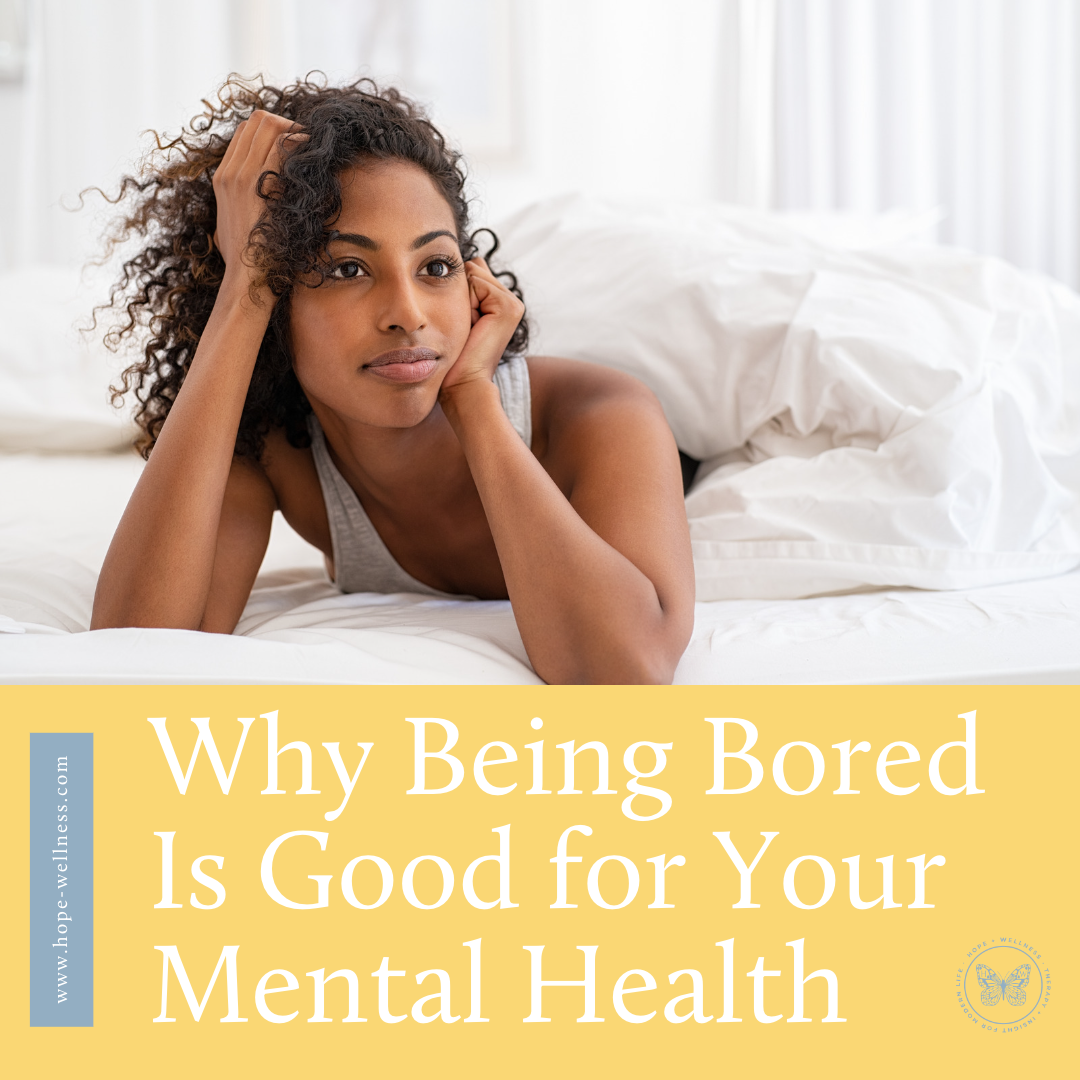
Hope +Wellness Blog
little snippets of advice for everyday challenges many people share

Embracing Creativity in 2025
It’s not always easy to be creative, especially in modern life. So many of us already feel too busy and too tired to manage more than our day to day responsibilities, so how can we even make space for creativity?

Why Being Bored Is Good for Your Mental Health
Boredom has a reputation for being a negative state of mind, but boredom actually has benefits for your mental health, like improving creativity, curiosity, and self-control.

8 Ways to Upgrade Your Self-Care Routine in 2022
One impactful way to make a change is to reconsider and upgrade your self-care routine. The last two years have thrown a lot at us, and in turn it’s helpful to amp up the way we care for ourselves in these difficult times.

5 Ways to Cultivate Creativity
How creative are you? Creativity often brings to mind artists or musicians, but there are infinite ways to be creative. You might not consider yourself creative at all, and that’s okay. We tend to think of creativity as something that you either have or don’t, but the truth is that you can become more creative. Cultivating creativity can help boost your self-esteem, improve your work performance, and leave you feeling more fulfilled.
Hope+Wellness is a mental health practice specializing in the treatment of depression, mood, stress, and anxiety in kids, teens, and adults. This is a blog about living well and finding meaning and purpose in the face of difficult challenges. This is a blog about finding hope.
Archive
- ACT
- ADHD
- Acceptance
- Anxiety
- Authenticity
- Belonging
- Bipolar
- CBT
- Calming
- Change
- Chronic Illness
- Chronic Pain
- Communication
- Community
- Coping Skills
- DBT
- Dating
- Depression
- EMDR
- Emotions
- Entrepreneurs
- Friendship
- Gratitude
- Grief
- Health Psychology
- Hope
- Inspiration
- Intimacy
- Intuition
- Joy
- Letting Go
- Love
- Manic Depression
- Mindfulness
- Miscarriage
- OCD
- Parenting
- Personal Growth
- Positive Vibes
- Quotes
- Relationships
- Resources
- Self-Compassion
- Self-Reflection
- Services
- Sleep
- Spirituality
- Stress Management
- Stress Relief
- Suffering